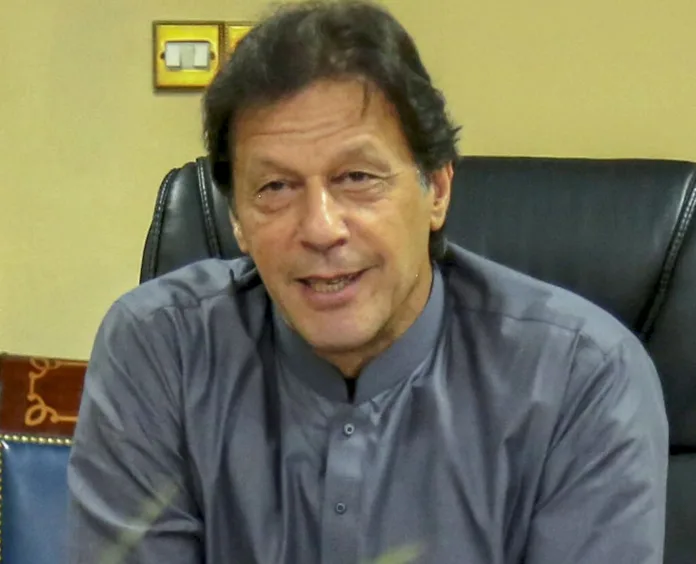PTI founder claims amendments are aimed at protecting fraudulent election outcomes and delaying the investigation into May 9 events
In a recent statement, Pakistan Tehreek-e-Insaf (PTI) founder Imran Khan accused the government of orchestrating constitutional amendments designed to extend the terms of key judicial and electoral officials—referred to as “three umpires”—to shield fraudulent election results and prevent investigations into alleged electoral misconduct.
Speaking to media after a court hearing related to a £190 million case at Adiala Jail, Khan alleged that the government’s push for constitutional changes is intended to benefit the Chief Justice of Pakistan (CJP), the Chief Justice of the Islamabad High Court (IHC), and the Chief Election Commissioner (CEC). He criticized these officials for their involvement in elections he claims were tainted by fraud and expressed concern that their extended terms would obstruct necessary scrutiny and accountability.
Khan dismissed suggestions that the push for amendments had subsided, asserting that the government remains determined to proceed with the changes regardless of opposition. He pointed out that recent events, including the postponement of elections and alleged attempts to weaken his party, are part of a broader strategy to entrench the current regime’s hold on power.
Embed from Getty ImagesAddressing the defiant stance of JUI-F chief Maulana Fazlur Rehman, Khan initially refrained from detailed commentary but later expressed support for Rehman’s defense of democracy. Khan implied that there are fears about the potential revelations that could emerge from investigations if Chief Justice Qazi Faez Isa were to retire, particularly concerning the May 9 incidents and alleged election rigging.
Khan criticized the handling of the May 9 events, alleging a deliberate attempt to undermine PTI and remove crucial CCTV footage. He claimed that the delay of the investigation into these events and the removal of footage were intended to prevent transparency and accountability.
Reflecting on the February 8 elections, Khan highlighted PTI’s unexpected success despite the constraints faced, including alleged voter fraud. He claimed that despite significant hurdles, including his own detention, PTI managed a notable victory with Yasmin Rashid defeating PML-N President Nawaz Sharif.
Khan urged citizens to rally in Lahore, despite a crackdown on PTI leaders and workers. He accused the government of undermining the rule of law and damaging investor confidence, noting that around 4,000 Pakistani companies have registered in Dubai due to the poor conditions in Pakistan.
He criticized the government’s inability to tax the wealthy elite, describing them as part of a corrupt “mafia.” Khan asserted that the mastermind behind the May 9 events bears responsibility for the current economic and political turmoil, and he called for substantial reforms to address the country’s challenges.
Analysis:
Political:
Imran Khan’s accusations reflect ongoing tensions between PTI and the current government. The focus on constitutional amendments and their impact on judicial and electoral oversight highlights the deep-seated political conflicts and allegations of corruption and electoral fraud.
Legal:
Khan’s allegations raise concerns about the integrity of constitutional processes and the potential for political manipulation. The extended terms for key officials could influence the credibility of future investigations and judicial decisions.
Economic:
Khan’s remarks about investor confidence and economic challenges underline the broader impact of political instability on Pakistan’s economy. The exodus of companies to Dubai and the lack of reform are cited as factors contributing to economic difficulties.
Social:
The call for mass rallies and public mobilization reflects a strategy to galvanize support and protest perceived injustices. The criticism of the government’s handling of the May 9 events resonates with Khan’s broader narrative of defending democracy and addressing governance failures.
Geopolitical:
The reference to overseas Pakistani investments and their reluctance to invest domestically highlights the global dimension of Pakistan’s economic challenges. Khan’s criticism of the government’s economic policies and legal reforms may also affect international perceptions of Pakistan’s stability and governance.
